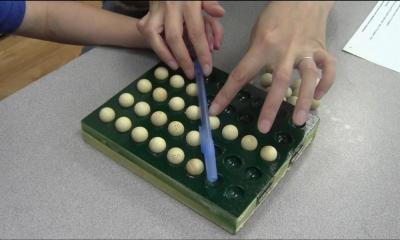HCIIers Part of CMU Team Competing for Global Learning XPRIZE

Can children learn to read, write and do basic arithmetic without a teacher or classroom, relying only on tablet computers, each other and some intelligent software? A team of Carnegie Mellon educational researchers — including members of the Human-Computer Interaction Institute — aim to find out in the $15 million Global Learning XPRIZE competition.
The question is a pressing one in much of the developing world, where teachers and schools are in short supply, if they exist at all, said Jack Mostow, a research professor emeritus in the Robotics Institute and the leader of CMU's "RoboTutor" team.
"At Carnegie Mellon, we take pride in solving big problems, and the lack of formal schooling is a truly immense problem in many parts of the world," Mostow said. "If we can develop educational technology to fill that gap, we can significantly improve the lives of the 250 million children who today can't read, write or do basic math."
The Global Learning XPRIZE, announced last year by XPRIZE, will award a grand prize of $10 million to the team whose open-source software proves best able to help children learn basic literacy and numeracy skills during a field test in East Africa. Almost 200 teams from 40 nations have registered.
CMU's expertise in data-driven learning science is uniquely suited to such a challenge, Mostow said. Researchers have a long history of developing computerized tutors, such as a Reading Tutor developed by Mostow that listens to students read aloud and helps them with pronunciation. Likewise, cognitive tutors pioneered by Ken Koedinger, professor of human-computer interaction and psychology, teach algebra to hundreds of thousands of U.S. students each year. Educational computer games, another CMU strength, will be an important part of the RoboTutor software.
Students and post-docs are also rising to the challenge.
"Part of the appeal is the possibility of having an impact on society," said Ran Liu, a post-doctoral researcher in the HCII and Department of Psychology. But part of it has to do with the immensity of the challenge. "A lot of my research involves small iterations to improve a curriculum, but not designing a curriculum from scratch," she explained. "It's just not like anything else I've been involved in."
The teams have until November 2016 to develop their solutions. An expert panel will select five finalists in 2017, with each of those teams receiving $1 million as they prepare for the critical field test in at least 100 African villages in 2017-2018.
Read the full story on the School of Computer Science website.

